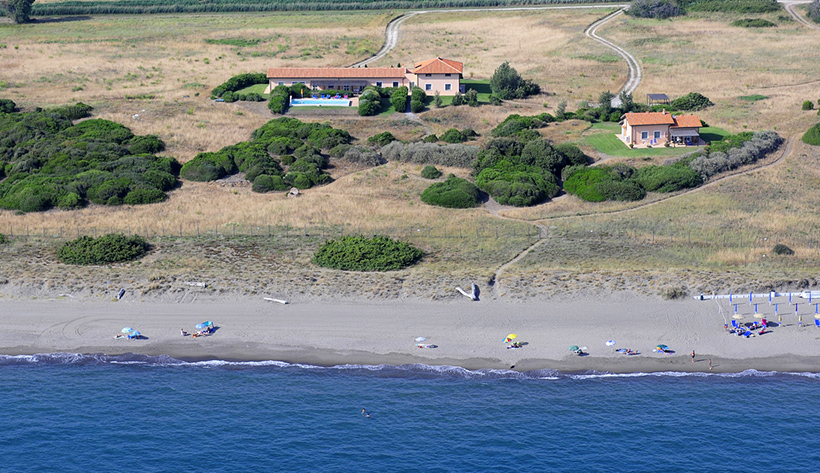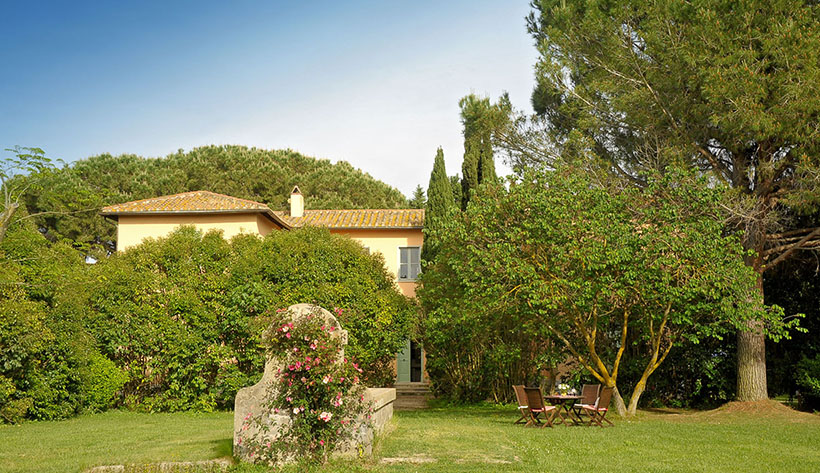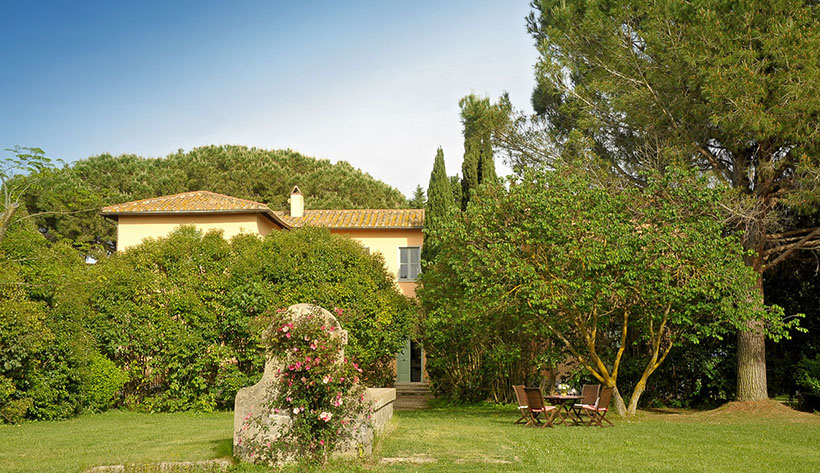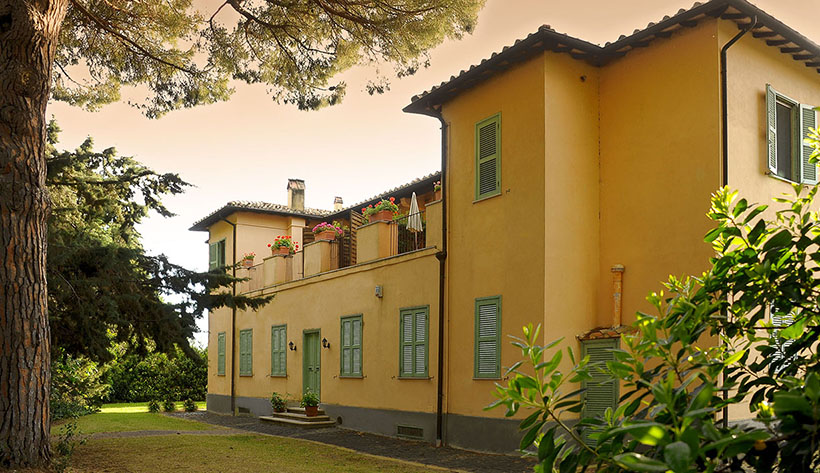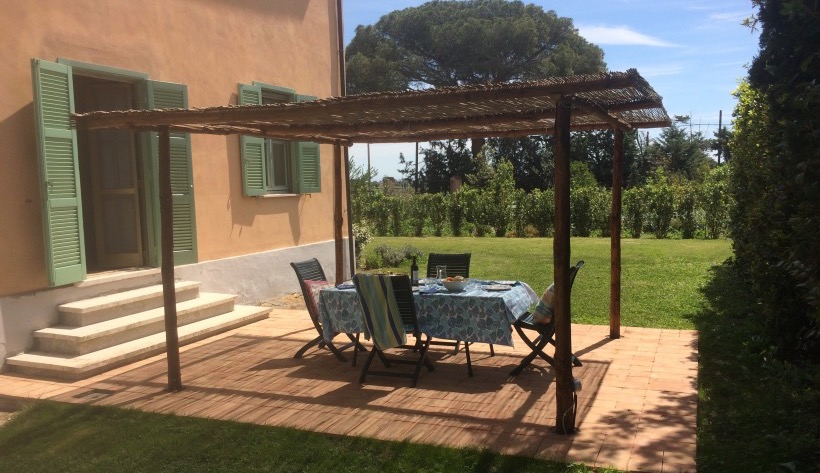An insider guide to our regions
Overview of the Fontanili
The estate of Fontanili lies in an area called Maremma, a lesser known and therefore all the more captivating part of Tuscany extending south towards Latium. It is a region which conjures up memories of foregone times, a world of large estates, generations of old families, harvests, summers and the sea.
One is almost tempted to believe that this untamed landscape owes its mystique to the lingering presence of the Etruscans, an ancient civilisation remembered for their peace-loving and hedonistic way of life who lived and farmed here centuries before Christ.
Over the past fifteen years the area has become a favourite spot for a certain Italian intellectual elite seeking the charm of the Tuscan way of life enriched by the joys of an unspoilt seaside.
A wide strip of fertile land separates the sea from the mountains. It is here that the house Fontanili stands, surrounded by trees and a charming garden. The estate extends over 260 hectares of olive groves and sunflower-fields. On the map you will find it roughly half-way between Rome and Grosseto, surrounded by the cultural landmarks of Tarquinia, Tuscania, Orbetello and Viterbo, which all are more or less half an hour‘s drive away.
The estate is managed by the owner Verio Piroddi, descendant of the princely family Ludovisi Boncompagni, who was awarded the property in 1870 by the Pope in order to avoid confiscation by the newly unified Italian Monarchy.
The estate of Fontanili used to cover the vast area of 4.600 hectares until the agrarian reform in 1953 redimensioned the property, redistributing the expropriated land to the former peasants of the property. The estate employs three farmers who live in the vicinity.
The ascent of the Boncompagni Ludovisi family goes back to Ugo Boncompagni, a brilliant lawyer from Bologna who represented the Vatican at the Council of Trent and was elected Pope in 1572, taking the name of Gregory XIII. He is remembered as thoroughly imbued with the cosciousness of the great responsability of his position, combatting all ecclesiastical abuses and appointing one day a week for a public audience during which everyone had access to him. The gregorian calender which we use today goes back to Gregory XIII.

















